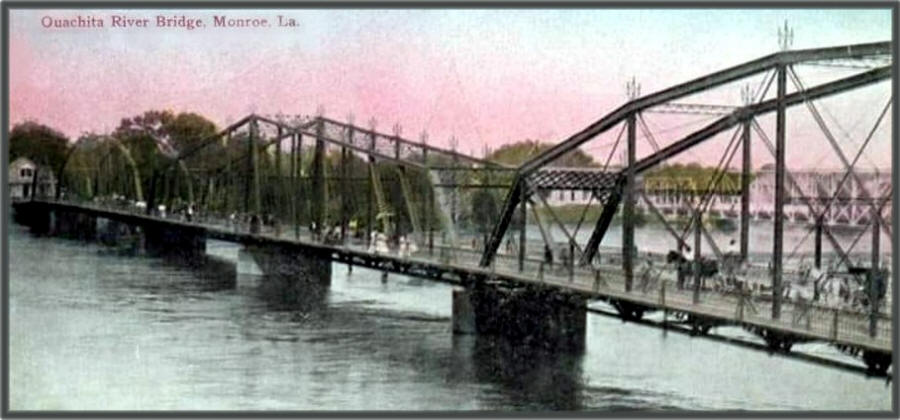
~ Delta Poetry Review ~
Atchafalaya Moonrise
Full moons always rise at sunset.
Not you, peering through my front window
as I steal rearview-mirror glances at a sun
lolly-gaggling its way into the horizon.
You’re missing a sliver of platinum clockface
and rising to the northeast.
Tomorrow you’ll be in perfect position,
but I won’t be driving through
the Atchafalaya Basin, somewhere
between Grosse Tete and Henderson,
surrounded by tupelo trees.
The sun dances away,
I ride the bridge into darkness.
All the while, your smile lights my road.
Moonbeam magic shimmers
on swamp water, transforming coastal forest
into a grove of silhouettes. Willows weep
for Evangeline, conjured pirogue creeps
from imagination into the shadows.
You’re climbing higher, above my sight
unless I hunch over the steering wheel,
seeking heaven. Dreams don’t last,
my eighteen-mile reverie recedes
into everyday speed of passing cars,
but I know the river still splits into old and new,
like time or my life. Whiskey Bay Pilot Channel
marks levee’s end, opens as a bud blossoming,
welcomes most of the flow. It runs a faster,
wilder way to the Gulf. Give me Old Channel
through Butte La Rose where nature gets intimate,
where sense of place hangs holy,
like mossy vestments on cypress alters
bathed in flickers of lunar candlelight.
Itta Bena Blues
—Refrain from “Why I Sing the Blues”
Payment started on a ship with hard men rattling chains,
holding a whip. They said Albert Lee King was free,
but he paid with shreds of pride and crops he grew.
Never had much, nothing brand new on his share
of Berclair Plantation. What could he give Riley B, the son
whose life came with no guarantee in Itta Bena, Mississippi?
And everybody wanna know why I sing the blues
Well, I’ve been around a long time ─ I’ve really paid my dues
Gospel choir introduced freedom in song. Reverend Fair
taught him chords, but music met its master on the street corner
of Church and Second where a good tune earned ten cents,
and Riley B learned there were enough corners in one night
of singing to earn more dimes than in a week picking cotton.
Rules couldn’t hold his voice, needing to shout about the future
in a new world. In 1949 the Beale Street Blues Boy birthed a record
“Miss Martha King Take a Swing with Me,” before divorcing her.
And everybody wanna know why I sing the blues
Well, I’ve been around a long time ─ I’ve really paid my dues
Calluses from fingering a guitar became a handhold of power
let loose on Lucille after God showed him how to bend strings,
like water flowing from the cleft Moses made in the rock at Horeb.
He had no angel’s halo, but a vibrato, shimmering on stage
for near seventy years, a unique style copied by contemporaries,
and it echoes still ─ ‘cause the thrill ain’t gone.
And everybody wanna know why I sing the blues
Well, I’ve been around a long time ─ I’ve really paid my dues
Notes:
Riley B, known to the world as BB King, was born to parents who were
sharecroppers on Berclair Plantation near Itta Bena MS. Cutting his
first record in 1949, he performed until a year before his death at
age 89.
Every guitar he owned was named Lucille. He is a blues legend and
considered by many to be the greatest blues guitarist who has ever
lived.
Maryella Sirmon is a wife, mother, grandmother, and retired physician. She has an abiding interest in the world we live in, the stories we tell each other, and the art of medicine. Her poetry has been published in the Annals of Internal Medicine, Oracle, October Hill Magazine, Pulse: Voices from the Heart of Medicine, Deep South Magazine, and three anthologies including, Faith, the most recent anthology from The Poet. Email: mdsirmon@aol.com
| Archive | Submissions | About |